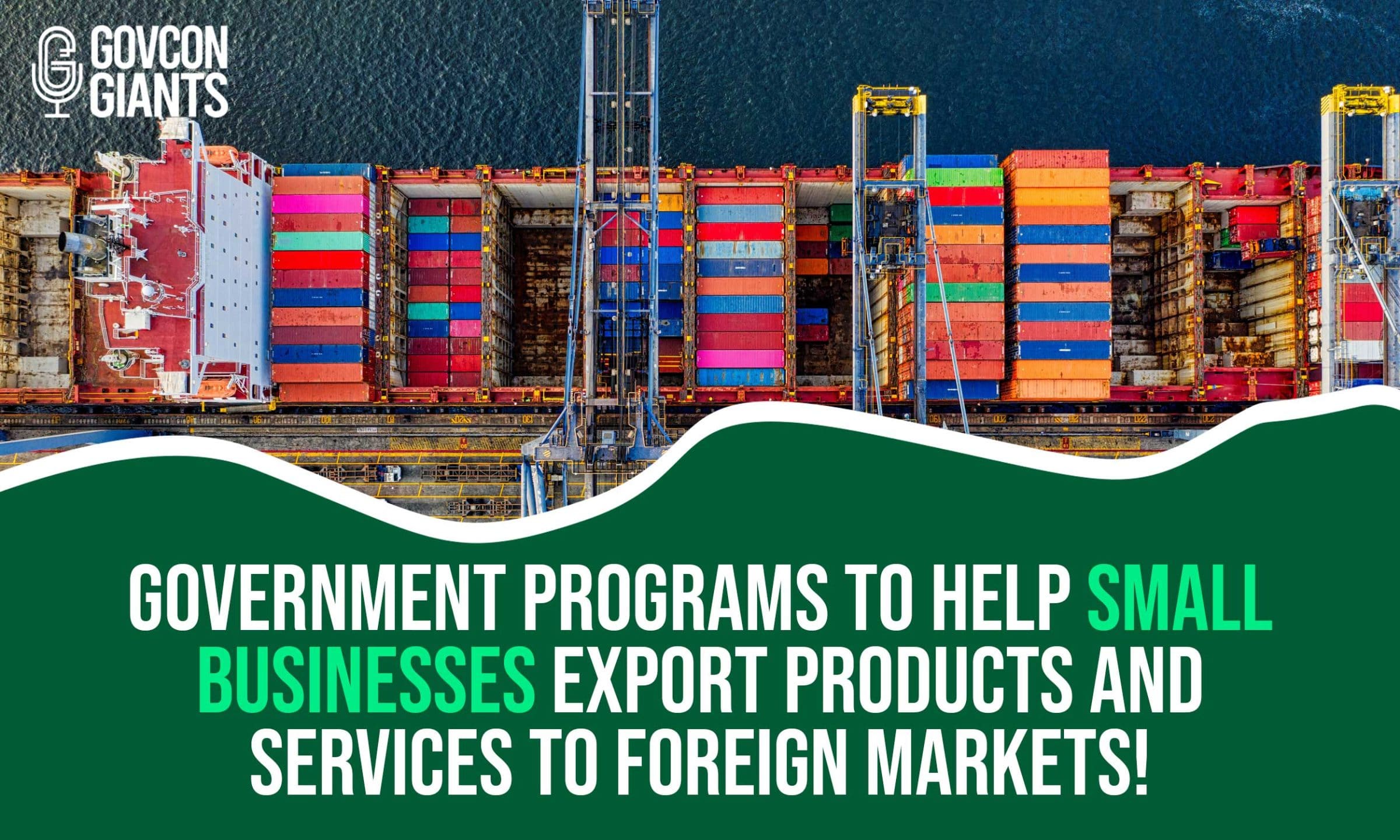Export excellence with these government programs to help small businesses export products and services to foreign markets!
EXPORTING FOR SMALL BUSINESSES
American-made products are respected and coveted around the world and exporting goods and services to other countries is good for the United States economy and to all small businesses.
However, while large businesses often have the experienced staff to successfully export their products or services, small businesses need extra guidance and support in order to understand the complexities of exporting successfully.
This is why it’s no surprise that governments at all levels pitch in to help small businesses in the US.
In fact, the departments within the federal government, especially the Department of Commerce and the Small Business Administration (SBA), participate in enabling small businesses to bring products and services to foreign markets.
With this, the best place to start is at the International Trade Administration’s Export Solutions, a portal that pulls together the resources from 19 federal agencies that help businesses with exporting.
EXPORT EXCELLENCE!
1. Learn how to export.
If you want to compete on the world stage, you will need to learn the ins and outs of successful exporting.
You can do this through the SBA’s growing library of videos, podcasts, online courses, and other resources. Learn how to do your international market research now!
2. Understand the complex world of exporting.
Every country has their own licensing and standards requirements. Finding the right licenses and adhering to the right standards will ensure a successful exporting business.
With this, the International Trade Administration’s Export Solutions provides a convenient landing page that outlines licenses, standards, sanctions, and training that exporters need to navigate through the international market.
3. Understand the market.
The United States Department of Commerce has an International Trade Administration that performs market research.
They provide over 100,000 industry and country-specific market research reports for US-based companies registered on their Export Solutions portal.
4. Find and connect with partners and buyers.
Through a variety of programs offered by the US Department of Commerce, small businesses can find potential customers through a Trade Leads program, receive trade fair certification to appear in foreign trade shows, search for partners, and meet foreign buyers in US trade shows.
5. Manage your financials.
It costs money to initiate an exporting business. With this, the SBA offers 3 loan guarantee programs:
- The Export Express Program streamlines the lending process and backs up to 90% of a loan from a lender so small businesses can borrow up to $250,000 to fund a variety of exporting initiatives.
- The Export Working Capital Program guarantees lenders up to $1.5 million of a $2 million loan so exporters have a working capital to fund the various costs required in exporting.
- The Trade Loan program guarantees lenders up to $1.5 million of a $2 million loan so exporters can start exporting or become more competitive if they have been adversely affected by imports.
Get more information about these finance programs (including the temporary 2009 Recovery Act fee waiver) at the SBA’s website.
Apart from that, you can also check these organizations for financial solutions:
- The US Department of Commerce performs credit checks and trust assessments on international clients.
- The Export-Import Bank of the US offers numerous insurance products for businesses that are exporting.
With all of these, there are also other insurance products that include multi-buyer policies, short-term policies, and political risk policies, depending on the destination and type of exporting transaction. If you want to learn more about this, visit this link.
THINGS TO CONSIDER
Note: The resources listed above are for federal government exporting use only.
Most states provide their own additional resources to help companies within their state export to the international stage. Be sure to Google the name of your state plus “export assistance” or visit your state’s government website for export guidance.With this in mind, if you want to learn more about doing business with the US government around the globe, then join us here at GovCon Giants. Just visit our website and other social media platforms or check the new GovCon Edu where you learn everything about government contracting!

